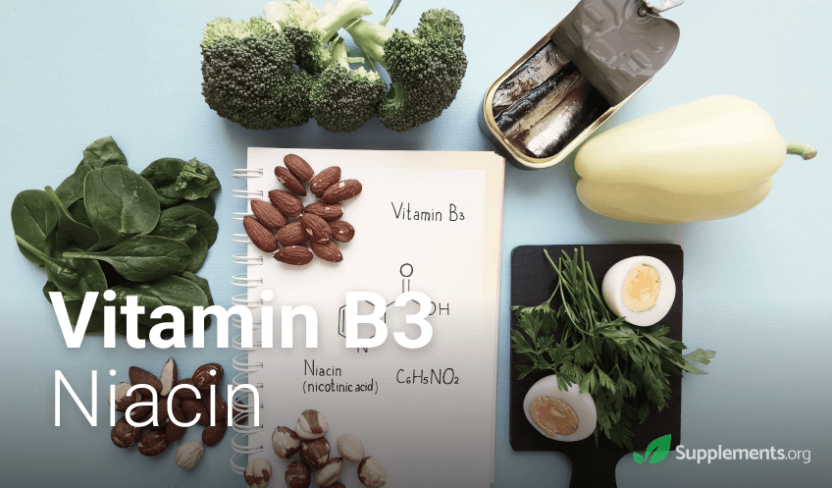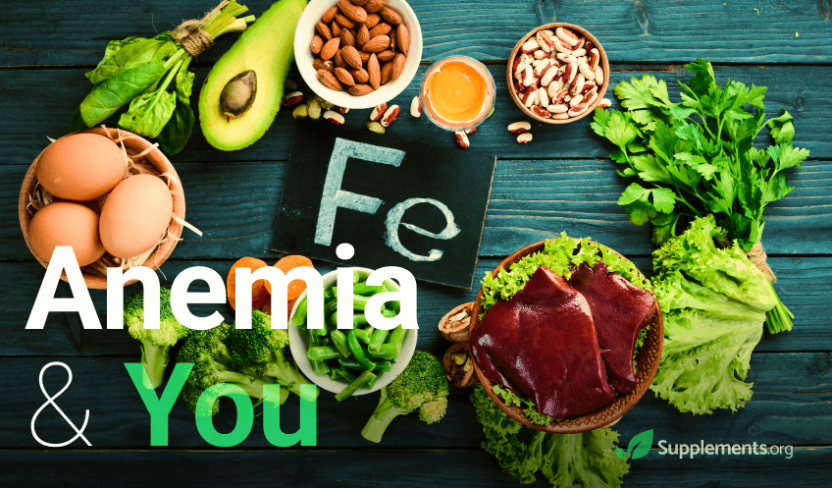Niacin and You. Unlocking the Benefits of Vitamin B3 for Health and Wellness

Niacin, an essential B vitamin, plays a pivotal role in maintaining overall well-being, affecting various body systems, from skin to nervous system. A balanced intake is crucial to leverage its benefits such as enhanced cognitive activity and metabolic processes. Natural sources like rye bread, beans, and nuts, or supplements can help achieve recommended levels. Remember, adequate niacin levels are key in averting conditions like Pellagra and optimizing metabolic functionalities.
Definition of Niacin/Vitamin B3.
Niacin, also known as Vitamin B3, is one of the essential nutrients that your body needs to function optimally. It's a water-soluble vitamin, meaning it isn’t stored in your body and needs to be regularly replenished through your diet. Niacin plays a crucial role in converting the food you eat into energy by aiding enzymes that are involved in the metabolism of cells.
It’s a pivotal component in maintaining healthy skin, aiding the function of the digestive system, and sustaining nerves in their optimal state. This vitamin is also significant as it impacts your cardiovascular health, possibly assisting in the reduction of cholesterol levels. Understanding Niacin’s role is essential, as it impacts various physiological processes and contributes significantly to your well-being.
Brief Overview of its Importance.
Vitamin B3 is more than an element of your diet; it’s a catalyst that propels the numerous biochemical processes within your body, ensuring your system runs smoothly. It’s the unseen hero that works diligently, making sure your digestive system, nervous system, and skin maintain their health and function efficiently.
Its presence may go unnoticed, but its absence can create a cascade of issues, impacting your vitality and daily life. Embracing a lifestyle that ensures adequate intake of Niacin is embracing a life of wellness and balance, fortifying your body’s defenses and ensuring your internal machinery works seamlessly to support your active and vibrant life.
The Basics of Niacin Other Names – Nicotinic Acid, Vitamin PP, B3.
You might encounter Niacin under various names such as Nicotinic Acid, Vitamin PP, or simply, B3. These names are interchangeable, but they all refer to this same crucial vitamin. Knowing these aliases is helpful, especially when you're reading food labels or supplement ingredients, ensuring you're well-informed about what you're putting into your body.
It’s like having a secret decoder ring, allowing you to uncover the hidden presence of this vital component in your meals and nutritional supplements. So, next time you see any of these names on a label, you’ll know that it’s Niacin working silently, playing its crucial part in maintaining your health and wellness, fostering your body’s balance, and supporting your journey to a healthier, more harmonious life.
Water Soluble Nature
Niacin’s water-soluble characteristic means that it dissolves in water and is distributed throughout your body, helping ensure that it reaches all the nooks and crannies where it's needed most. Any excess amount that your body doesn’t need is typically excreted through your urine. This means it's important to consume it regularly, as your body doesn’t store it. Think of it as a daily nutrient companion, quietly contributing to your well-being each day. This soluble nature also implies that it’s quite accessible through various foods and supplements, making it easy to incorporate into your daily diet. So, regularly enjoying foods rich in Niacin or considering a supplement can ensure your body continually receives this essential nutrient, supporting your overall health and keeping you feeling your best.
Sources and Effects of Niacin. Food Sources of Niacin
Opt for nutritious options like rye bread, buckwheat, beans, and nuts, which are all excellent sources of Niacin. These foods not only provide you with the essential vitamin B3 but also offer a range of other nutrients beneficial to your health.
Take rye bread for example. It contains fiber, vitamins B1, B2, B3, B5, B6 and B9 as well as Iron, Magnesium, Zinc, Phosphorous, Selenium, Proteins and Antioxidants. It’s no wonder these nutrients are often packed together in supplement form – that’s the way nature does it.
By choosing a varied and balanced diet, you're supporting your body's nutritional needs and promoting optimal well-being. Including a diverse array of Niacin-rich foods helps in maintaining balanced energy levels and aids in the optimal functioning of your body's systems. Regular consumption of these foods is a practical step in sustaining a healthy lifestyle and preventing Niacin deficiency related complications.
Synthesis from Tryptophan.
Your body has the incredible capability to synthesize Niacin from tryptophan, an amino acid found in many protein-containing foods, with the support of vitamins B6 and B2 and iron. This synthesis means even if your direct Niacin intake is low, consuming foods rich in tryptophan like turkey, chicken, and chocolate can help maintain adequate Niacin levels.
However, relying solely on tryptophan for Niacin synthesis may not be enough, especially when your nutritional needs are high. Balancing your diet with direct sources of Niacin ensures you are covering all bases and supporting your body’s various functions effectively. This synthesis not only signifies the versatility of your body's metabolic processes but also underscores the importance of a well-rounded diet in sustaining health and well-being.
Effects on Body Systems.
Niacin plays an indispensable role in maintaining the health of your skin, digestive organs, and nervous system. It facilitates the production of fatty acids and cholesterol, critical components for cell membranes, including those of skin cells. A sufficient amount of Niacin in your diet can contribute to glowing, healthy skin, and aid in the prevention of skin disorders.
For your digestive system, it assists in producing stomach acid and supports the organs involved in digestion, helping you process your food more efficiently and comfortably. Regarding the nervous system, it assists in neurotransmitter synthesis, which is crucial for optimal brain function and maintaining mood balance. Regular and adequate intake of Niacin, therefore, acts as a multi-beneficial nutrient, ensuring the smooth operation of several vital physiological processes in your body.
Conversion into Nicotinamide in the Body.
Once Niacin is inside your system, your body gets to work and converts it into Nicotinamide, a component crucial for cellular energy production. This transformation is essential. Nicotinamide is a vital player in many enzymatic reactions within your cells, helping keep the cellular machinery running smoothly.
It's like having a silent partner, diligently working behind the scenes to support your energy levels and overall vitality. This conversion ensures that your body’s cells are well-fueled and functioning optimally, paving the way for a harmonious balance within your body’s complex systems. Embracing a lifestyle that provides adequate Niacin can, therefore, contribute to maintaining this cellular balance, enhancing your well-being and vitality.
Importance in Metabolic Processes.

Niacin’s role in the formation of NAD+ and NADP+ is pivotal for your metabolic processes. These coenzymes are vital for cellular respiration, allowing your cells to convert food into the energy you need to live and thrive. It’s fundamental for your body’s production of energy from carbohydrates, fats, and proteins, ensuring every cell gets the fuel it requires. Without sufficient Niacin, these processes would be hindered, affecting your energy levels and overall vitality.
By sustaining a proper intake of Niacin, you aid your body in maintaining these essential metabolic reactions, allowing for a steady release of energy throughout the day, keeping you active and alert. Including it in your diet supports the optimum functioning of your body, contributing to your overall health and wellness.
The Consequences of Deficiency. Symptoms and Signs of Deficiency
A deficiency in Niacin can bring about a range of uncomfortable and harmful symptoms, impacting your quality of life. You might notice troubling signs like indigestion, fatigue, canker sores, vomiting, and depression. These can signify that your body is not receiving the adequate amounts of Vitamin B3 it needs to function properly.
A severe deficiency can lead to symptoms of pellagra – the technical term for overall Vitamin B3 deficiency and the associated symptoms like dermatitis, diarrhea, and dementia. It’s essential to be aware of these signs to ensure timely intervention and prevent any lasting damage to your body. It’s difficult to accurately self-diagnose these kinds of deficiencies, but you can use evidence of these symptoms as motivation to get a proper checkup from a licensed physician.
More on the Symptoms of Pellagra.
Pellagra manifests as a trio of symptoms often referred to as the "three Ds": dermatitis, diarrhea, and dementia. If you experience these, it's a sign your body is severely lacking in vital Niacin. Dermatitis presents as rough, sunburnt - like skin, particularly in areas exposed to sunlight. The gastrointestinal disturbance, mainly diarrhea, can disrupt your daily life, and the deterioration of mental functions, dementia, impacts your cognitive capabilities. Recognizing these symptoms early on is crucial, as untreated pellagra can be fatal. To protect your health and well-being, ensure your diet includes sufficient Niacin-rich foods, or explore suitable supplements, especially if you observe any signs of this severe deficiency.
Recommended Intake and Therapeutic Usage. Daily Recommended Intake
Understanding the daily recommended intake of Niacin is essential for maintaining a balanced and healthy lifestyle. For adults, the average daily recommended amount is 14-16 mg for men and 14 mg for women. When you are pregnant, this requirement increases to 18 mg, and while breastfeeding, it goes up to 17 mg per day.
It is known that significantly higher doses of Niacin, up to 600mg are not harmful and they’re sometimes recommended by physicians during specific use cases. Extreme doses in the 5g to 10g range are administered to improve lipid profiles and reduce cholesterol, but not without severe side effects like depletion of methyl groups. Such experimentation is absolutely not recommended at home.
Adhering to these guidelines can prevent the onset of deficiencies and related complications. Consuming a diet rich in varied foods like lean proteins, whole grains, and vegetables typically provides sufficient amounts of Niacin to meet your daily needs. However, should you experience any deficiency symptoms, it might be wise to consider fortified foods or supplements to maintain optimal health. Keep an eye on your intake, ensuring it aligns with the recommended amounts, to promote overall well-being.
And again, always default to the professional opinions of your physician.
Therapeutic Doses and Effects on Lipid Profile.
Let’s dive into the more advanced chemical reactions of Niacin in your body. We need to talk about lipid profiles. Also known as lipid panels or cholesterol panels; these are blood tests that provide valuable information about the levels of different types of lipids (fats) in your blood. These tests are typically used to assess your risk of cardiovascular diseases, including heart disease and stroke, as lipids play a crucial role in the development of atherosclerosis (the buildup of plaque in arteries).
Concerning lipid profiles, higher doses of Niacin might be beneficial. These doses can significantly reduce LDL ("bad") cholesterol and triglycerides, while increasing HDL ("good") cholesterol levels in your bloodstream. This regulation of lipids aids in preventing atherosclerosis and subsequent cardiovascular issues. When you are under therapeutic Niacin administration, your healthcare provider will closely monitor dosage increments, usually starting with lower amounts and gradually increasing them to minimize side effects like flushing or liver strain.
Following professional guidance and maintaining regular check-ups ensure safe and effective utilization of niacin in therapeutic applications, providing you with the potential benefits while minimizing risks. Balancing these therapeutic doses is crucial in achieving desired outcomes and preventing any unwarranted consequences on your health.
Indications for taking Niacin. When and Why Niacin Should Be Taken
Identifying the right times and reasons to incorporate niacin is crucial. Niacin is vital when your diet is lacking in it or when your body shows signs of deficiency, requiring more to function optimally. It’s especially relevant for those facing metabolic disorders or high cholesterol, where it can act as a catalyst in controlling lipid profiles.
You might also need it if you’re experiencing chronic headaches or migraines, as it assists in alleviating such discomforts by improving blood flow. Keep in mind, recognizing your body’s cues and understanding when niacin is needed helps in maintaining equilibrium within your body systems, ensuring that each physiological process gets the appropriate support it needs to function effectively and keep you in your prime health condition.
Benefits of Niacin
Niacin plays a multifaceted role in promoting your well-being. For one, it's instrumental in the management of cardiovascular conditions, reducing arterial inflammation and improving blood lipid levels, which are crucial for heart health. In particular, it has shown significant effectiveness in reducing bad cholesterol levels while raising the good ones.
Additionally, your cognitive function and mental acuity can significantly benefit from adequate niacin levels, enhancing neural connectivity and protecting your brain from degenerative disorders. It's not just about addressing health conditions; it's about elevating your overall quality of life, allowing you to live more fully and vibrantly. Embracing the holistic benefits of niacin means empowering your body to operate at its optimal capability, paving the way for a more balanced and harmonious existence.
Importance for Overall Well-being.
Having adequate levels of niacin is a cornerstone for maintaining your well-being and vigor. Its impact spans from the cellular to the system level, ensuring your body’s myriad processes function smoothly. It’s crucial in synthesizing fatty acids and cholesterol, elements vital for cellular structures and hormone production.
Niacin’s role is pivotal in energy production, aiding in converting the food you eat into the energy that fuels your daily activities. Your mental health also reaps the benefits, with niacin being crucial for brain health and cognitive function, potentially shielding against age-related decline and mood disorders. By ensuring your niacin intake is optimal, you’re not just preventing deficiencies; you’re fostering resilience, vitality, and a more balanced mental state, allowing you to navigate life’s challenges with greater ease and stability.
Reaction to Niacin. Vasodilating Effect of Niacin
When you consume niacin, your blood vessels experience a widening effect, known as vasodilation, allowing for enhanced blood flow throughout your body. This phenomenon is especially prominent in the small vessels and capillaries under your skin. It’s this increased blood flow that can lead to the signature “niacin flush,” a harmless yet noticeable warmth and reddening of the skin.
This effect is temporary and usually subsides as your body adapts, but it signifies that the niacin is active in your system, promoting circulation, delivering nutrients more efficiently, and removing waste products from your cells. Understanding this response allows you to anticipate and comfortably navigate this natural response, viewing it as a sign of improved overall circulation and enhanced nutrient delivery to your cells.
Side Effects of Niacin.

Acknowledging the side effects of niacin is vital for your informed and safe consumption. Common reactions, besides the flush, can include mild dizziness, itching, or gastrointestinal disturbances. Although these effects are typically temporary and lessen with continued use, being aware of them empowers you to manage your niacin intake optimally. Starting with lower doses and gradually increasing allows your body to adapt, mitigating unwanted reactions. Discussing any concerns or unusual responses with a healthcare professional ensures that you're using niacin safely and effectively, maximizing the benefits while minimizing any potential discomfort. It’s essential to align niacin consumption with your individual health needs and conditions, maintaining a balanced and informed approach to optimize your well-being.
Dosage and Administration. Initial Doses and Increments
Determining the right initial dose of niacin is crucial for your body to acclimate to its effects and benefits. Typically, starting with a lower dose and gradually increasing it helps in minimizing the common side effects like flushing and itching. It’s essential for you to monitor your body’s responses and adjust the doses accordingly to maintain comfort and efficacy. The increments should be moderate and considerate of your body’s adaptability and your overall health status. Consulting with a healthcare provider or a nutritionist can provide personalized guidance on the appropriate dosage increments, ensuring a balanced and effective integration of niacin into your routine. Their insights can help tailor the intake to your specific health needs and conditions, offering optimal benefits with minimal discomfort.
Duration of Administration and Possible Adjustments.
Once you’ve established an initial dose, the duration of niacin administration can vary based on your individual health goals and needs. Regular monitoring of your response will guide any necessary adjustments to the dosage or duration. If you experience any discomfort, minor alterations might be needed to ensure you’re receiving the benefits without undue side effects.
For some, a shorter duration might be sufficient, while others might require a longer period to observe the desired outcomes. Whether you’re using niacin to manage cholesterol levels, improve brain function, or enhance skin health, adapting the duration intelligently can maximize the therapeutic effects. Remember, the key is to maintain balance, respecting your body’s signals, and adjusting the niacin intake to align with your well-being goals.
Safe Doses for Different Groups.
Identifying a safe dosage is crucial, especially for specific groups like pregnant women and children, who have different nutritional needs and sensitivities. Pregnant women should consult their healthcare provider to determine a suitable and safe niacin intake to support both their well-being and the healthy development of the baby.
Children’s developing bodies require careful consideration to avoid excessive intake while still meeting their growing needs. Adequate dosage ensures they receive the benefits of niacin without risking adverse effects. For each individual, adjusting the dose to correspond with age, health status, and specific needs is paramount. It’s crucial to adhere to recommended dosages and seek professional advice to navigate any uncertainties and optimize your niacin intake safely. Keep your healthcare provider informed of any supplements or dietary changes you decide to make.
Recommended Supplements and Treatments. Suggested Supplements Containing Niacin
Exploring a myriad of available supplements is essential in optimizing your niacin intake. Numerous reputable brands offer quality niacin supplements, ensuring you receive the purest form of this vital nutrient. When considering supplements, it’s paramount to choose ones with high bioavailability, guaranteeing optimal absorption and utilization within your body.
Prioritize products that are third-party tested for quality and purity, and avoid supplements with excessive fillers or artificial additives. By being diligent in selecting high-quality supplements, you’re ensuring that your body reaps the full benefits of niacin. Keep in mind, integrating niacin supplements should complement a well-rounded diet rich in varied nutrients, not replace it. Regularly reassessing your dietary choices and supplement intake guarantees that you’re meeting your body’s evolving needs effectively and safely.
Incorporating Niacin into Your Daily Routine Safely.
Incorporating niacin seamlessly into your daily routine starts with understanding your individual nutritional needs. Start with a smaller dosage and gradually increase, allowing your body to acclimate to avoid undue stress. When you integrate niacin supplements into your regimen, it is critical to maintain balanced hydration and consume a well-rounded diet to support overall nutrient intake.
It is recommended to follow the guidelines on the supplement’s label, and consult with a healthcare professional or a dietitian, especially if you have pre-existing conditions or are on medication. Regular monitoring of your body’s response is vital to adjust the dosage as needed. Balancing niacin intake, keeping abreast of the recommended values, and paying attention to your body’s signals are the key components in safely harnessing the benefits of niacin while minimizing the risks.
Standard Practices and Advice.
Usually, one tablet of over the counter Niacin comes in 50mg tablets for easy consumption. You can start with one tablet before meals in the first week, then up the dosage to two. In order to avoid resistance, you should increase the dose up to 2 tablets, 3-5 times a day. You may do this over the course of 3 months. The positive effects should appear quickly, but if you opt for a lower dosage like in the 50 to 100mg range, then you might have to wait a good two months before seeing results.
If you happen to be experiencing erectile dysfunction, this is usually a sign of disrupted blood flow from issues with blood vessels and endothelium. To prevent this issue, stick to 500mg of Niacin and 1g of Citrulline an hour before sex. Nicotinic acid has also been found to encourage a “brighter” orgasm in women.
CONCLUSIONS.
It is important to be informed and proactive in maintaining a balanced niacin level to benefit from its manifold positive impacts on health. So, commit to understanding and embracing niacin as part of your health regimen, and witness the enhancement in your well-being and quality of life.
Beyond Niacin, there are its other forms like Nicotinamide and B3 flash free, each having its unique properties and impacts. It’s critical to discern the differences between them to tailor your intake according to your specific needs and health goals. For instance, Nicotinamide does not cause the flushing associated with niacin but still provides the health benefits, making it a suitable choice for those who are sensitive to the vasodilating effect of niacin. Likewise, understanding the various forms and their attributes ensures a more informed and personalized approach to incorporating this vital vitamin. This nuanced approach can aid in optimizing the benefits while minimizing any potential adverse effects, offering a balanced and individualized pathway to enhanced well-being through informed choices.
Niacin or Vitamin B3, emerges as a crucial nutrient, imperative for maintaining optimal human health. Its water-soluble nature and transformative abilities, converting into Nicotinamide, play significant roles in various metabolic processes, primarily as a constituent of NAD+ and NADP+ coenzymes. The ramifications of its deficiency are profound, underlined by disorders like Pellagra, emphasizing the importance of maintaining adequate levels through consumption of rich food sources like rye bread, beans, and nuts, or through supplements if needed.
The therapeutic usage of Niacin is noteworthy, with significant implications for improving lipid profiles and combating conditions like cardiovascular diseases and migraines. However, adherence to recommended dosages and proper administration is crucial to avoid adverse reactions and to maximize the benefits for overall well-being, cognitive functionality, and maintaining skin, digestive, and nervous system health.
Lastly, the existence of other variants such as Nicotinamide and B3 flash free underline the versatility of this vitamin in addressing diverse health needs. Balancing intake, understanding the sources, and recognizing the effects are paramount in leveraging the benefits of Niacin to achieve and sustain optimal health.
References
- Makarov MV, Trammell SAJ, Migaud ME. The chemistry of the vitamin B3 metabolome. Biochem Soc Trans. 2019 Feb 28;47(1):131-147. doi: 10.1042/BST20180420. Epub 2018 Dec 17. PMID: 30559273; PMCID: PMC6411094.
- Jacobson MK, Jacobson EL. Vitamin B3 in Health and Disease: Toward the Second Century of Discovery. Methods Mol Biol. 2018;1813:3-8. doi: 10.1007/978-1-4939-8588-3_1. PMID: 30097857.
- Pietris J. The Role of NAD+ and Nicotinamide (Vitamin B3) in Glaucoma: A Literature Review. J Nutr Sci Vitaminol (Tokyo). 2022;68(3):151-154. doi: 10.3177/jnsv.68.151. PMID: 35768245.
- Wohlrab J, Kreft D. Niacinamide - mechanisms of action and its topical use in dermatology. Skin Pharmacol Physiol. 2014;27(6):311-5. doi: 10.1159/000359974. Epub 2014 Jun 27. PMID: 24993939.
- Hui F, Tang J, Williams PA, McGuinness MB, Hadoux X, Casson RJ, Coote M, Trounce IA, Martin KR, van Wijngaarden P, Crowston JG. Improvement in inner retinal function in glaucoma with nicotinamide (vitamin B3) supplementation: A crossover randomized clinical trial. Clin Exp Ophthalmol. 2020 Sep;48(7):903-914. doi: 10.1111/ceo.13818. Epub 2020 Jul 28. PMID: 32721104.
- Bissett DL, Oblong JE, Berge CA. Niacinamide: A B vitamin that improves aging facial skin appearance. Dermatol Surg. 2005 Jul;31(7 Pt 2):860-5; discussion 865. doi: 10.1111/j.1524-4725.2005.31732. PMID: 16029679.

















